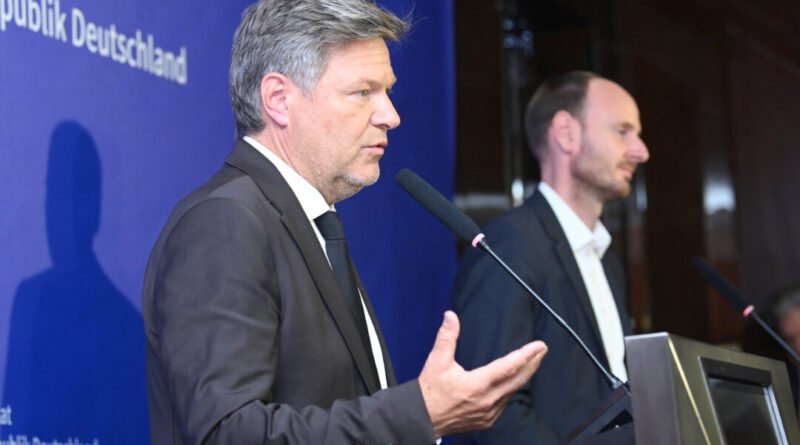German Vice Chancellor Condemns CCP Support for Russia, Citing Harm to Berlin-Beijing Relations
Robert Habeck is the first European senior official to visit China since Brussels increased tariffs on electric vehicles imported from China.
During an official visit to China, German Vice Chancellor Robert Habeck noted that the Chinese communist regime’s support for Russia in the Ukraine war has strained the economic relationship between Berlin and Beijing.
Mr. Habeck mentioned that bilateral trade between China and Russia saw a significant increase in 2023, with almost half of it being goods with dual civilian and military applications.
While speaking to reporters in Shanghai on June 22, Mr. Habeck emphasized that circumventing sanctions on Russia is unacceptable.
Upon arriving in Beijing on June 21, Mr. Habeck held meetings with China’s Commerce Minister Wang Wentao, Industrial Minister Jin Zhuanglong, and Zheng Shanjie, the head of China’s top economic planner, the National Development and Reform Commission. He then proceeded to Shanghai on June 22.
Expressing concern, Mr. Habeck stated that Beijing’s support for Moscow has adversely impacted its relationship with the 27-nation European bloc.
He emphasized the need to diversify supply chains to avoid heavy reliance on raw materials that may pose a threat to Germany’s interests.

‘Not Punitive Tariffs’
Mr. Habeck is the first senior European official to visit China since Brussels announced additional tariffs of up to 38.1 percent on electric vehicles (EVs) imported from China. The European Union found that China’s EV makers benefit from unfair state subsidies, harming the EU’s auto industry.
During his meetings with Chinese officials, Mr. Habeck defended the EU’s proposed tariffs, stating that they are not punitive but are open for discussion.
He emphasized that dialogue is possible and urged for discussions to take place with China.
The preliminary duties on China-made EVs could come into effect next month, with full implementation by November.
“The two sides agreed to start consultations regarding the EU’s anti-subsidy investigation into China’s electric vehicles,” the statement added.
Brussels reiterated its commitment to engage with Beijing based on facts and respect for WTO rules.
The European Commission’s trade spokesperson, Olof Gill, affirmed that any outcome from the investigation must effectively address the issue of harmful subsidization.
“Both sides will continue discussions at different levels in the upcoming weeks,” he added.
The Associated Press and Reuters contributed to this report.





